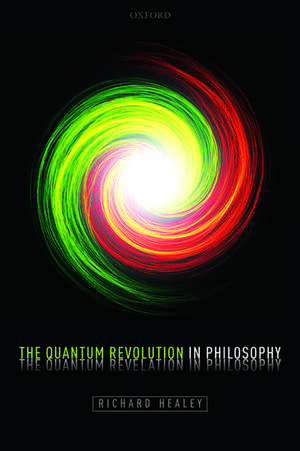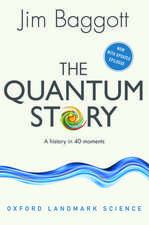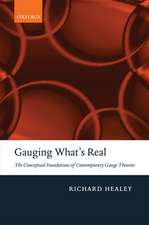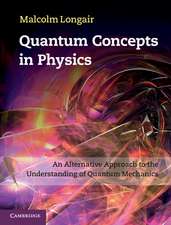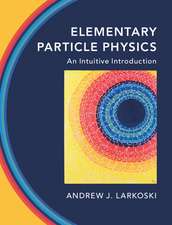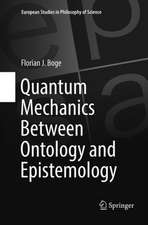The Quantum Revolution in Philosophy
Autor Richard Healeyen Limba Engleză Paperback – 11 iul 2019
| Toate formatele și edițiile | Preț | Express |
|---|---|---|
| Paperback (1) | 191.32 lei 31-37 zile | |
| OUP OXFORD – 11 iul 2019 | 191.32 lei 31-37 zile | |
| Hardback (1) | 451.54 lei 31-37 zile | |
| OUP OXFORD – 15 iun 2017 | 451.54 lei 31-37 zile |
Preț: 191.32 lei
Preț vechi: 229.82 lei
-17% Nou
Puncte Express: 287
Preț estimativ în valută:
36.61€ • 38.32$ • 30.47£
36.61€ • 38.32$ • 30.47£
Carte tipărită la comandă
Livrare economică 20-26 martie
Preluare comenzi: 021 569.72.76
Specificații
ISBN-13: 9780198844679
ISBN-10: 0198844670
Pagini: 320
Dimensiuni: 156 x 234 x 17 mm
Greutate: 0.5 kg
Editura: OUP OXFORD
Colecția OUP Oxford
Locul publicării:Oxford, United Kingdom
ISBN-10: 0198844670
Pagini: 320
Dimensiuni: 156 x 234 x 17 mm
Greutate: 0.5 kg
Editura: OUP OXFORD
Colecția OUP Oxford
Locul publicării:Oxford, United Kingdom
Recenzii
The book is primarily intended for those without a background in QT: philosophers, scientists, and laypeople interested in going beyond the metaphors found in popular presentations. ... The Quantum Revolution marks a major advance. The vast majority of quantum interpreters have simply assumed that QT provides a novel description of reality. Those that have recognized other options typically have in mind subjectivist views like QBism. Healey's view provides an important third option: QT provides objectively correct guidance about the world. Healey's view suggests a radical revision to the standard problems and the philosophical import of QT, and such a shake-up is certainly good for progress in the area.
Richard Healey is not messing around. His new book on quantum theory promises to overturn most of what we thought we knew about the quantum world (spoiler alert: there is no such thing), and in the process prompt a reappraisal of long-held assumptions about explanation, causation and other core scientific concepts. . . . In its main aims, to communicate this new picture of quantum theory to a wide range of readers and to situate it as part of a coherent pragmatist philosophical package, the book succeeds admirably. . . . There is a great deal of novelty and philosophical interest in the resulting picture, especially in the connections that are drawn with contemporary pragmatism and inferentialism. Healey's book is sure to become a standard point of reference in the interpretive literature.
Richard Healey is not messing around. His new book on quantum theory promises to overturn most of what we thought we knew about the quantum world (spoiler alert: there is no such thing), and in the process prompt a reappraisal of long-held assumptions about explanation, causation and other core scientific concepts. . . . In its main aims, to communicate this new picture of quantum theory to a wide range of readers and to situate it as part of a coherent pragmatist philosophical package, the book succeeds admirably. . . . There is a great deal of novelty and philosophical interest in the resulting picture, especially in the connections that are drawn with contemporary pragmatism and inferentialism. Healey's book is sure to become a standard point of reference in the interpretive literature.
Notă biografică
Richard Healey has been Professor of Philosophy at the University of Arizona since 1991. One aim of his research has been to inquire how far foundational studies of physics shed light on metaphysical topics such as holism, realism, composition, time and causation. He is now exploring the relations between science and metaphysics from a broadly pragmatist perspective. His Gauging What's Real (2007), exploring the conceptual foundations of gauge theories in physics, was awarded the Lakatos Prize in the philosophy of science.
